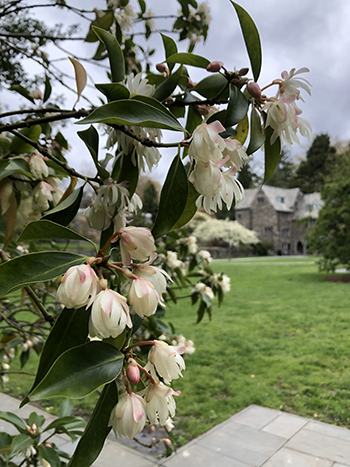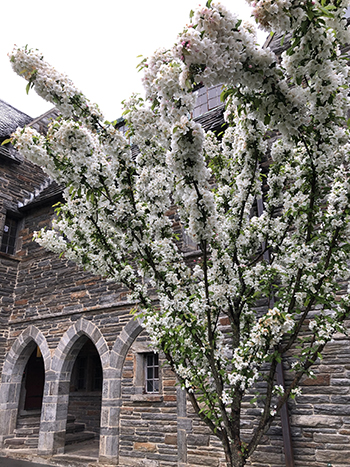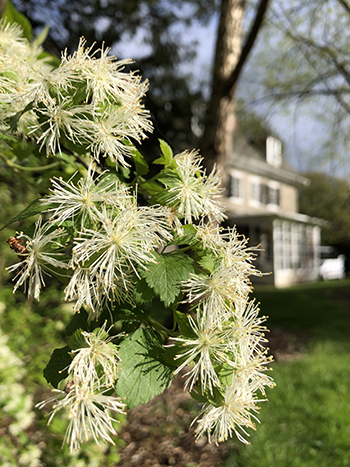
Plant of the Week: April 27

For most of the season Illicium anisatum ‘Pink Stars’ is a subtle, unassuming evergreen, perfectly anchoring the corner of a foundation planting on the northside of Bond Memorial Hall. When in bloom, however, the shrub is a showstopper, never failing to stop passersby. The aromatic Japanese anise-tree is native to Japan where the leaves are crushed and used as incense. Showy 2″ spidery, star-like flowers of the palest pink bloom throughout April and into May. Illicium anisatum is tolerant of wet sites and heavy shade, but requires winter protection. Photo credit: J. Coceano

Crabapples conjure images of wizened, crooked trees, and like most aging creatures, spreading more outward than up. Malus ‘Adirondack’, located in Bond Quad, turns that perception on its head. ‘Adirondack’ is a small, strongly upright-growing, deciduous crabapple boasting a beautiful vase-shaped habit. Stems are covered in large white flowers opening from deep garnet-red buds. Small, smooth, bright orange-red edible fruits follow in early autumn. Photo credit: J. Coceano

Neviusia alabamensis provides a feeling of familiarity in the garden – surely a plant that your grandparents grew in their front yard. The deciduous shrub is native to the Southeastern United States, though rather rare in the wild. Commonly called snow-wreath, plants are showy in bloom despite flowers having no actual petals. Apetalous flowers bloom in clusters of 3-8 flowers each in April and May. A singular flower consists of a fluffy clump of white stamens surrounded by 5 greenish-white sepals. Prune immediately after flowering and thin out older stems to promote vigor. Experience these spring blooms for yourself located in front of Ben West House in the Magnolia Collection. Photo credit: J. Coceano





No Comments